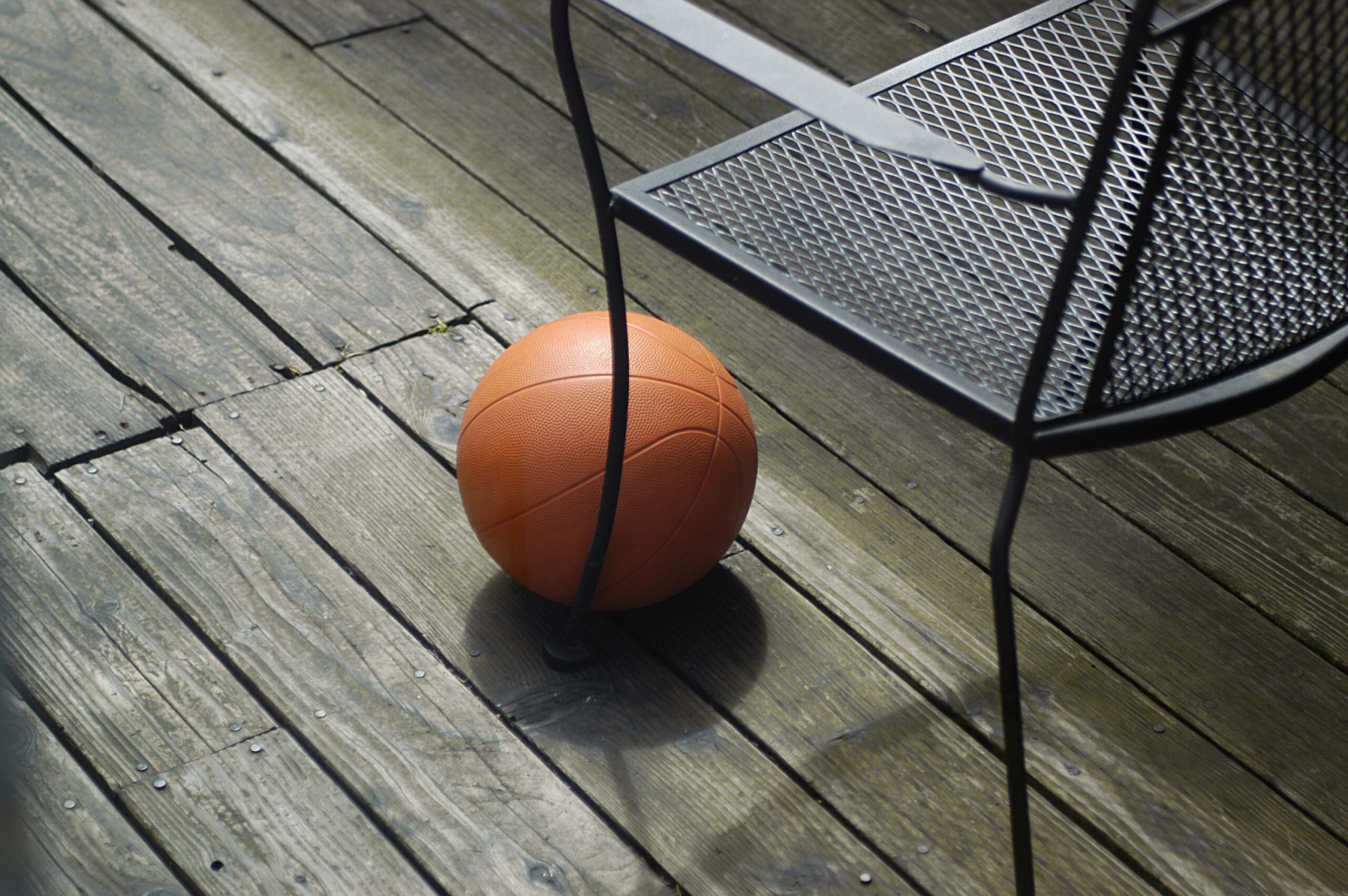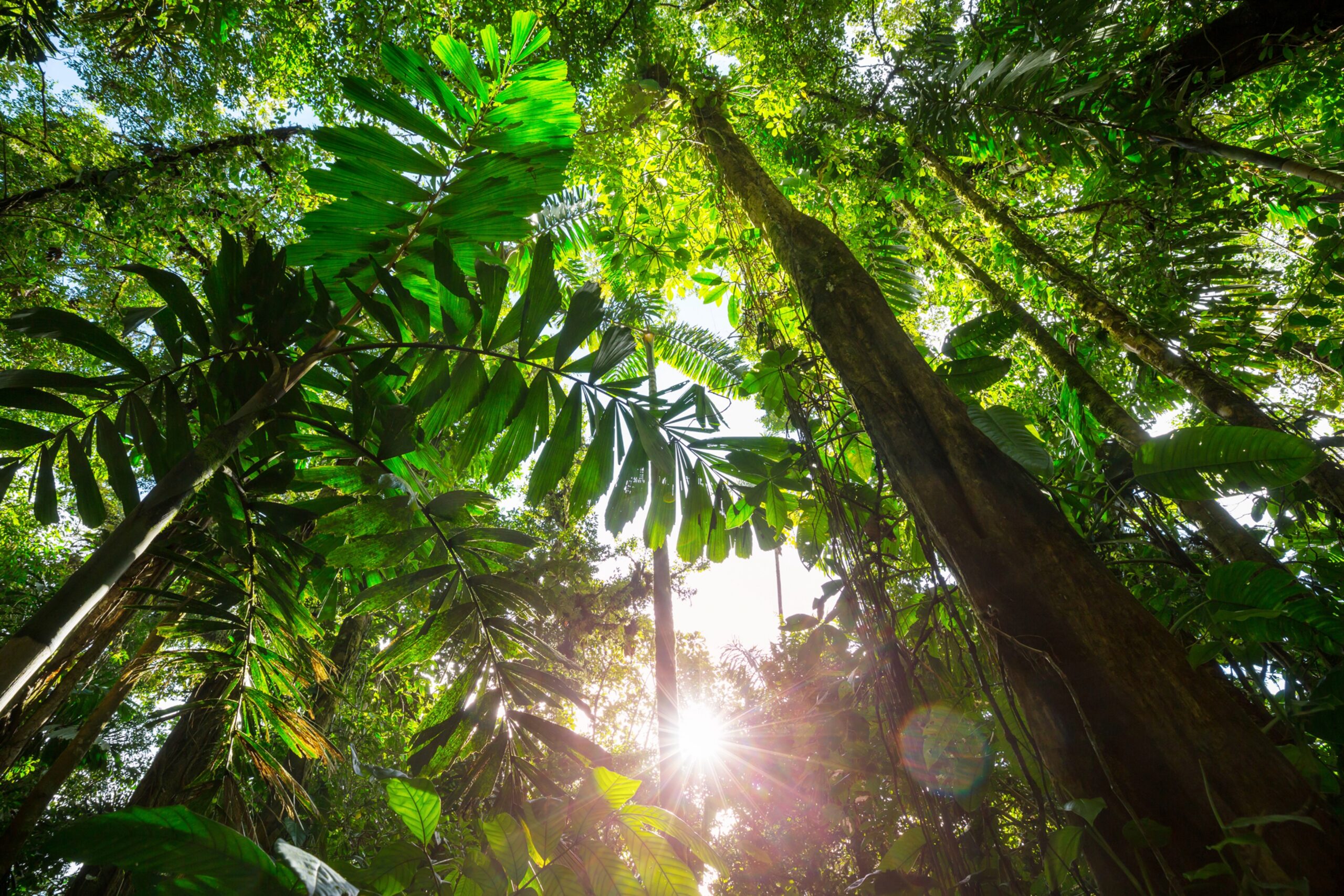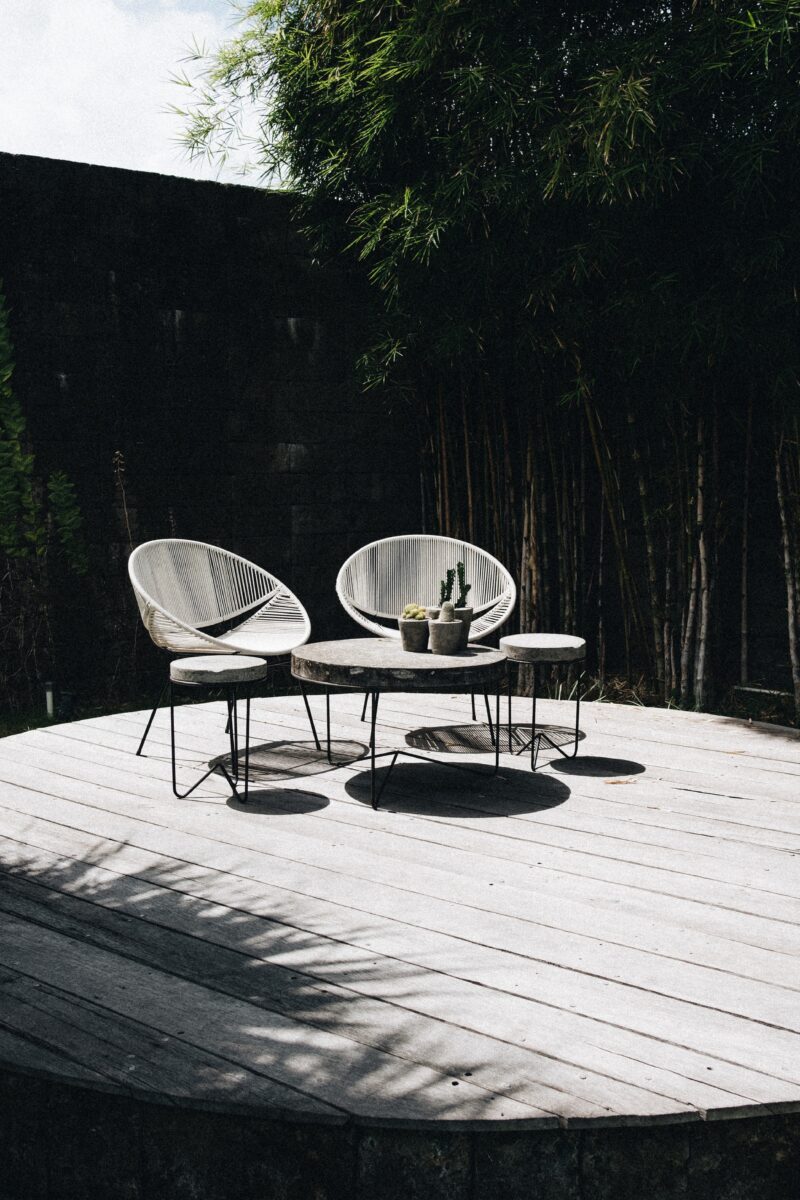Which types of wood are best for timber decking
Published: 27/08/19 By: Mike Bekin
When it comes to decking for a garden, a larger landscaping project or even a pier, there are a lot of options out there. Depending on both your budget and what you want the decking to look like, there are many options for you to choose from. Here we discuss the different types of wood that are best for decking to help you choose the correct wood for your next project.
Hardwood vs Softwood
The first decision that you should make is whether you want to use a softwood or a hardwood. The main advantage of a hardwood is its longevity. Although chemically impregnated softwood decking has a life expectancy of approximately 15 years, some hardwoods such as Balau can last up to 50 years. Because they can last so much longer, hardwood timber is generally considered by a lot of people to be higher quality, however this naturally comes at a higher cost. Hardwood decking also needs minimal maintenance, which is another consideration. Overall, softwood is the most common option for decking due to it still being relatively durable but at a lower price.
Hardwood is a type of wood which comes from trees which are slow growing and broad leaved. Oak is a common example of a hardwood. Softwood derives from species of trees which are faster growing and are often conifers and evergreens such as pine and spruce. In general, hardwood decking will outperform softwood decks when it comes to overall “toughness” as they are extremely durable. However, softwood decking, once treated, is a much more economical choice initially, but will require more maintenance over the lifecycle of the product.
Thermo modified wood
Thermowood is available in a variety of timbers including both softwoods (e.g. Thermodified Pine) and hardwoods (e.g. Thermodified Ash). Thermowood® is a registered process, created by heating the timber in a low oxygen environment using a carefully balanced mix of heat, pressure and vapour. This ends up changing the chemical structure of the wood and in turn making it more durable and increasing the stability of the material. This process is particularly effective for softwoods such as Pine. We supply Thermowood® as well as other similar processes of thermo modification with comparable performance – let us know what you're after and we'll help you.
A great benefit to this process is that it doesn’t involve any chemicals. Thermally modified wood is becoming an increasingly popular choice in the UK for cladding as well as decking projects. Once the treatment has been carried out, the wood will look slightly darker but still natural. It is also safe to burn and is 100% recyclable once it has reached the end of its lifecycle.
OrganoWood
OrganoWood has revolutionised timber technology and has become award winning as it uses silica (a natural material) to increase the durability and stability of decking as well as improving its fire resistance.
The process is inspired by fossilisation where natural substances (such as silicon) permeate the structure and turn them into a material similar to stone. This means that OrganoWood is in fact 10% fossil and 90% wood. The part of the wood that is fossilised is on the surface, meaning that it is protected from rot and is fire resistant. In addition to this, because it is replicating a natural process, this is an eco-friendly method, making it is a great option for those who are environmentally conscious, whilst still being cost effective.
Pressure treated / chemically treated
 This is one of the most popular types of wood for decking as it is usually the most affordable option whilst still providing a sturdy and durable decking. This decking is usually made from softwoods such as pine that have been preserved with a chemical biocide treatment to give it protection from both insects and mould. The layer of preservative chemicals that is impregnated into the timber can sometimes be shallow and can lead to leaching of these chemicals. Ensure you are aware of the chemicals used. Although some are safe, some may not be as family friendly as other options such as OrganoWood or Thermodified Wood. If any sections (no matter how small) have been chopped, you will begin to see damage to these areas unless you protect and seal them.
This is one of the most popular types of wood for decking as it is usually the most affordable option whilst still providing a sturdy and durable decking. This decking is usually made from softwoods such as pine that have been preserved with a chemical biocide treatment to give it protection from both insects and mould. The layer of preservative chemicals that is impregnated into the timber can sometimes be shallow and can lead to leaching of these chemicals. Ensure you are aware of the chemicals used. Although some are safe, some may not be as family friendly as other options such as OrganoWood or Thermodified Wood. If any sections (no matter how small) have been chopped, you will begin to see damage to these areas unless you protect and seal them.
Temperate Hardwood
 Temperate hardwoods come from forests located between the tropics and the polar regions. They have moderate climates, four seasons, a clearly defined winter and are located in both the Northern and Southern hemispheres. Temperate forest locations include the United States, Canada, Europe and Japan. Oak and Chestnut are the main species used for decking. They will create beautiful long-lasting decking that requires minimal maintenance, is naturally weather resistance and has a desirable colour. It is also worth remembering that if you choose European species you will also be minimising the carbon footprint of your project.
Temperate hardwoods come from forests located between the tropics and the polar regions. They have moderate climates, four seasons, a clearly defined winter and are located in both the Northern and Southern hemispheres. Temperate forest locations include the United States, Canada, Europe and Japan. Oak and Chestnut are the main species used for decking. They will create beautiful long-lasting decking that requires minimal maintenance, is naturally weather resistance and has a desirable colour. It is also worth remembering that if you choose European species you will also be minimising the carbon footprint of your project.
Tropical Woods
Many deem tropical woods to be one of the best options for decking. Not only are they incredibly dense, making them extremely durable, but they also look stunning. That is probably why they are more expensive than other choices and they can be hard to source. If you are leaning towards using a tropical wood, then you need to ensure it comes from a responsible source and is produced in a sustainable way, as deforestation is a huge concern with these species of wood and irresponsible forestry can cause havoc on our ecosystem. An easy way to solve this is to check your tropical timber is FSC® certified.
Cost Benefit Analysis
Before you choose the timber you need for your decking project, you will need to undertake a cost benefit analysis. Consider your budget, the location of the project and what appearance you are looking for before choosing, bearing in mind that natural wood will always tend to weather to silver grey. You also need to consider the maintenance needs of the option you choose as they vary significantly. If the appearance of the decking is your highest priority, with no or minimal knots, then hardwood may be the way to go, as long as you are prepared for the higher price tag. Alternatively, if lower cost and environmental footprint is your main concern then exploring Thermodified wood and OrganoWood are great options.
Cost should not be your only driving factor since installing the deck can be quite time and labour intensive so you probably don’t want to do this very often. Considering the effect on the environment should also be high on your priority list, especially for large public projects, as sustainability and going green is not a passing trend. Many governmental contracts will only be awarded to projects that demonstrate a strong sustainability aspect. This does not mean that sustainable timber needs to cost you more, however. There are many FSC and PEFC species that range in price to suit a variety of budgets.
Timber is a great material to use for decking projects due to the carbon sinking qualities, insulation properties and low energy production, making it a natural and amazing choice for those seeking a low carbon footprint. Composite boards (made with plastic, so high footprint) may maintain their colour and even be very durable, however nothing compares to the feeling of walking barefoot on real natural wood.
Who are EcoChoice?
EcoChoice are specialist suppliers of certified timber and recycled plastic products for exterior works: from cladding and decking to piers and footbridges. We were formed in 2005 with the aim of promoting FSC certified timbers to the UK construction industry, helping customers to engage in a sustainable way instead of turning away from both the deforestation and plastic waste problems. We offer products from a wide range of timber species.
We are passionate about supplying our clients with independently certified timber products while encouraging responsible and sustainable practices at the source level. To find out how we can help you get a quick, no obligation quote, please call us on 0345 638 1340, email us on info@ecochoice.co.uk or for more information about our sustainable timber products, please visit our website, https://ecochoice.co.uk.
Tags: Decking, Hardwood, Landscaping, OrganoWood, Softwood, ThermoWood, Timber
Categories: Insights
